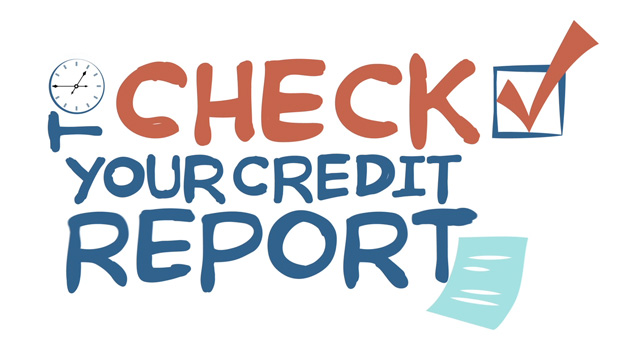
While the economy has been showing some signs of improvement, your good name and reputation is becoming more important within the community. Creditors have tightened their guidelines effectively barring millions of Americans from borrowing money.
Mortgage lenders, auto finance companies, credit card issuers and banks have all raised the bar. Borrowers with low FICO scores can expect to be denied or to pay significantly higher interest rates than those with excellent histories.
Long gone are the days of obtaining credit, goods, benefits, services and/or employment with a 620 score. In most instances, a consumer will be denied if they maintain a credit score lower than 740. Even those with high credit scores have experienced closed credit card accounts and equity lines. When an account has not been closed, credit limits have been reduced to the current balance due.
The terms credit repair, credit restoration or credit rehabilitation are somewhat synonymous. Those with bad histories cannot afford to ignore the potential benefits of credit repair. In today’s economy, a strong FICO score is more important than ever.
Approximately 78% of credit profiles in the United States contain some sort of error or omission materially impacting credit worthiness. Absent self-help and the “do-it-yourself” approach, a consumer may hire a credit service organization (CSO) in the restoration of their good name and reputation within the community.
Most – but not all – CSO’s specialize in the restoration of consumer credit worthiness as well as identity theft issues. Assuming that the credit repair company is performing within the law, they utilize laws enacted by Congress to dispute negative, erroneous, obsolete, and/or fraudulent information contained within your consumer credit profile.
Utilizing the Fair Credit Reporting Act, the Fair Debt Collection Practices Act, the Fair Credit Billing Act, and the Fair and Accurate Credit Transactions Act, a reputable CSO will assist in the submission of disputes electronically, verbally and in writing to the Equifax, Experian and Trans Union consumer reporting agencies. Disputes are also submitted to creditors, collection agencies, third-party record providers and/or state, federal, local, and private regulatory authorities.
Unlike most credit repair clinics that submit the same written dispute letters monthly, a reputable CSO will have devised a strategy whereby disputes are submitted electronically, verbally and in writing over a long period of time to the credit reporting agencies, creditors, collectors, and third-party record providers reporting negative, inaccurate, obsolete and/or erroneous information.
Keep in mind that anything a CSO can do – you can do yourself for little to no cost. With that said, a reputable organization should have an edge as they will possess the education, knowledge and a source proven method that is generally unknown to the average consumer.
A reputable CSO should have a provable track record of results as well as the ability to modify and/or remove erroneous or inaccurate judgments, liens, foreclosures, bankruptcies, short-sales, student loans, inquiries, derogatory tradelines, personal identifiers and other transient data from a consumer’s credit report. Although the credit restoration process can take anywhere from 30 days to six months, most individuals should see some results within the first 45 to 60 days.
Credit repair, credit restoration and/or credit rehabilitation is as legal as pleading “not guilty” in a court of law. With that said, one must understand that most CSO’s are not law firms and that their employees may not be licensed to practice law. As such, even a reputable CSO cannot provide legal advice nor may they represent a consumer before any court or in any legal proceeding. In the event that legal representation is required, the credit repair company should provide an appropriate attorney referral for consultation.
Under the Fair Credit Reporting Act, as modified by the Fair and Accurate Credit Transactions Act, consumers are entitled to a free copy of their credit report under a narrow set of circumstances. If you have been denied credit, goods, benefits, services, insurance, and/or employment, the credit reporting agencies of Equifax, Experian and Trans Union are statutorily mandated to provide a copy free of charge.
Equifax can be contacted at (800) 685-1111 or www.Equifax.com;Experian can be contacted at (888) 397-3742 or www.Experian.com;and Trans Union can be contacted at (800) 916-8800 or www.TransUnion.com. Be sure to prompt that you were denied credit when requested to do so.
Absent these exceptions, consumers are entitled to one free “annual credit report” per year. Credit scores are not included with any of the “free credit reports” provided by the national credit reporting agencies.
For your free annual credit report, contact the central source at 877-FACT-ACT (877-322-8228) or www.AnnualCreditReport.com. Follow the voice prompts and obtain your credit report for review.
When self-help or the “do-it-yourself” approach is not feasible and you decide to hire a CSO to restore your credit, be sure to check them out. While the majority of credit repair clinics are scams, a few good ones do exist. Consumers can check out a credit service organization through their state Attorney General, the Federal Trade Commission at www.ftc.gov or through the Better Business Bureau at www.BBB.org.
__________________________________
The Credit Report with Bill Lewis airs live, Monday through Friday from 7am-8am with an encore presentation Saturday’s at 3pm on AM 740 WSBR. Streaming audio is available at www.wsbrradio.com and on air participation is welcome at (888) 721-0074.
For daily updates on The Credit Report with Bill Lewis, you can join Bill’s 35,900 plus fans on Facebook at: www.facebook.com/thecreditreportwithbilllewis.


